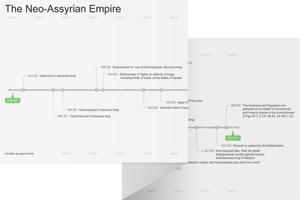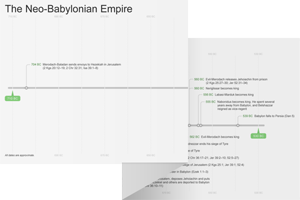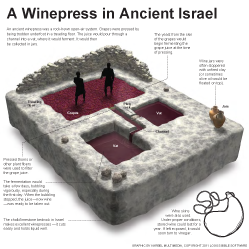3:1–21 Joel concludes his oracle of salvation by assuring Judah of divine judgment on its enemies. The purpose seems to be the same as that of the oracles against the nations found in Isaiah, Jeremiah, and Ezekiel, but Joel’s scope broadly encompasses “all nations” and refers to specific enemies of Judah only in passing. The image of Judah’s glorious future that ends the oracle (Joel 3:17–21) reflects similar accounts of ideal restoration found near the end of other prophetic books (Isa 66:10–14; Hos 14:4–9; Amos 9:11–15). |
3:1 In those days, and in that time A common prophetic phrase alluding to the future day of salvation (compare Jer 33:15).
I will return the fortunes of Judah See note on Jer 29:14.
3:2 all the nations Compare Jer 25:31; Ezek 39:21; Zeph 3:8.
the valley of Jehoshaphat An unknown location with a symbolic name that means “the Valley where Yahweh will judge.” This is the place where Yahweh gathers the nations for judgment.
they have scattered among the nations Both Assyria and Babylon were responsible for deporting Israelites. The scattering was one of the punishments emphasized in the covenant curses (see Lev 26:33).
my land that they have divided Israel became an Assyrian province after 722 bc. Judah was a province of Babylon and Persia (586 bc and 539 bc). Judah had no independent political existence until after the successful Maccabean revolt in 167 bc.
3:3 For my people they cast lots Casting lots was a form of divination. People determined the will of the gods through the ancient equivalent of throwing dice. Here, it refers to the method of dividing up the spoils of conquest (compare Obad 11).
3:4 O Tyre and O Sidon Prominent Phoenician cities on the Mediterranean coast, northwest of Israel (see note on Ezek 26:1–28:19). On Tyre, see note on Ezek 26:1.
the regions of Philistia The territory of the coastal plain southwest of Judah (see note on 1 Sam 4:1).
3:6 the sons of the Greeks The Hebrew term here is derived from “Javan,” the usual designation for Greeks in both Greece and Asia Minor (see Gen 10:2; Isa 66:19). Ezekiel also mentions trade of human slaves between Tyre and Javan (see Ezek 27:13 and note).
3:8 the Sabeans Probably referring to the people of Sheba or Saba from southern Arabia (see 1 Kgs 10:1–13 and note).
3:10 your cutting tools of iron into swords The imagery here is an exact reversal of Isa 2:4 (compare Mic 4:3), where the final judgment is described as a time of peaceful gathering. Here, the nations are called out to war, but their opponent is Yahweh arrayed for judgment. Compare Isa 8:9–10.
3:13 Send forth the sickle A tool with a curved blade used for harvesting. This imagery of judgment as a harvest is expanded in Rev 14:14–20.
the winepress is full Compare Isa 63:1–6 for the image of judgment as Yahweh treading grapes in a winepress.
3:14 the valley of decision Probably refers to the Valley of Jehoshaphat (see note on Joel 3:2). The name is likely a play on words with the image of a sickle, because the term usually translated as “decision” comes from a verb meaning “sharpen” or “decide.”
the day of Yahweh See note on 1:15.
3:16 And Yahweh roars from Zion Joel seems to be quoting from Amos 1:2a. Compare Jer 25:30 and note.
the heavens and the earth shake Compare Joel 2:10–11.
Yahweh is a refuge for his people Emphasizes that Yahweh’s wrath is now directed at the nations, not Israel (compare Psa 37:39; Isa 25:4).
3:17 Zion, my holy mountain The Temple Mount in Jerusalem. See note on Isa 2:2.
strangers will pass through it no longer See note on Isa 52:1.
3:18 the mountains will drip new wine Compare Amos 9:13.
A spring from the house of Yahweh will come forth Compare Ezek 47:1–12 and note.
the valley of Acacia Trees The site of Israel’s last encampment in the Transjordan before entering the land of Canaan (see Num 25:1; 33:49; Josh 2:1). The site is also connected with the idolatrous worship of the Baal of Peor (see Num 25:1–9).
3:19 Egypt will become a desolation Egypt’s interference in the affairs of Israel and Judah earned them frequent condemnation in the prophetic oracles against the nations (see Isa 19; Jer 46; Ezek 29–32).
Edom will become a desolate desert A traditional enemy of Judah condemned for gloating over Jerusalem’s destruction. See Ezek 25:12–14 and note.
the violence they did against the children of Judah Compare the similar accusation against Edom in Obad 10.
innocent blood Likely an allusion to the punishment for blood guilt (Deut 19:10). Widespread injustice is often summarized under the crime of shedding innocent blood (see Isa 59:7; Jer 7:6; 2 Kgs 21:16).
3:21 I will cleanse their bloodguilt Likely draws on the traditions of the avenger of blood as in Joel 3:19 (see Deut 19:1–13).
Yahweh is dwelling in Zion The concluding statement emphasizes Yahweh’s presence among His people.

|
About Faithlife Study BibleFaithlife Study Bible (FSB) is your guide to the ancient world of the Old and New Testaments, with study notes and articles that draw from a wide range of academic research. FSB helps you learn how to think about interpretation methods and issues so that you can gain a deeper understanding of the text. |
| Copyright |
Copyright 2012 Logos Bible Software. |
| Support Info | fsb |
 Loading…
Loading…



